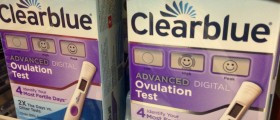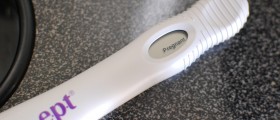
There is a wide variety of ovulation tests on the market, and they all work in the same way by reacting to levels of luteinizing hormone in your body. The ovulation test will react to any LH in your urine by indicating that you are fertile, and good to go. Because LH only turns up in the body during ovulation, the tests are very accurate. A lack of luteinizing hormone in your urine means you are not ovulating, and will therefore not get a positive ovulation test. It is important to take your ovulation test during the afternoon, because LH levels peak during this time. While your test results are likely to be accurate if you test during the morning or evening as well, it makes sense to maximize your chances of determining your ovulating correctly.
We recommend that you start testing for ovulating every day, starting from day 10 in your cycle. That way, you are sure to catch your ovulation. As you get used to ovulation testing and get more of a feel for when your ovulation tends to occur in your particular menstrual cycle, you can then alter your testing pattern to be ideal for you. You might also look at other methods to determine your ovulation, and learn to recognize ovulation signs that your body naturally sends you. Hopefully, you will get pregnant soon. But if your efforts to conceive are taking slightly longer, you might get to know your body so well you don't need ovulation tests any more.
- www.nhs.uk/common-health-questions/womens-health/how-can-i-tell-when-i-am-ovulating/
- medlineplus.gov/ency/article/007062.htm
- Photo courtesy of SPD Swiss Precision Diagnostics GmbH by Wikimedia Commons: commons.wikimedia.org/wiki/File:Clearblue_Digital_Ovulation_Test_with_Dual_Hormone_Indicator.png













Your thoughts on this
Loading...